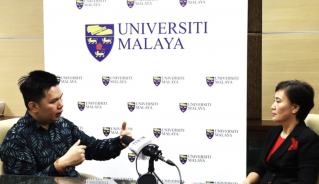ASEAN Future Forum 2025: Strengthening unity and strategic autonomy
VOV.VN - The high-level plenary session of the ASEAN Future Forum 2025 on February 26 focused on ASEAN’s future, strategic autonomy, economic sustainability, and regional cooperation, with the participation of Vietnamese Prime Minister Pham Minh Chinh, Malaysian Prime Minister Anwar Ibrahim, New Zealand Prime Minister Christopher Luxon, and Timor-Leste President Jose Ramos-Horta.
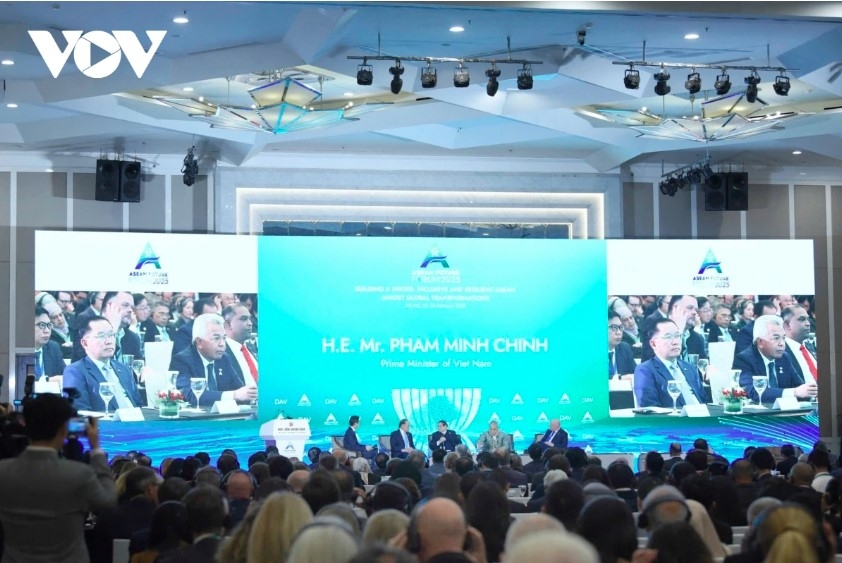
ASEAN must shine as a “beacon of hope”
In his keynote speech, Malaysian Prime Minister Anwar Ibrahim emphasized that ASEAN must serve as a “beacon of hope,” fostering a resilient, harmonious, and economically dynamic region amid growing geopolitical uncertainties. He underscored the importance of ASEAN’s centrality and strategic autonomy, warning that internal divisions could weaken the bloc’s influence.
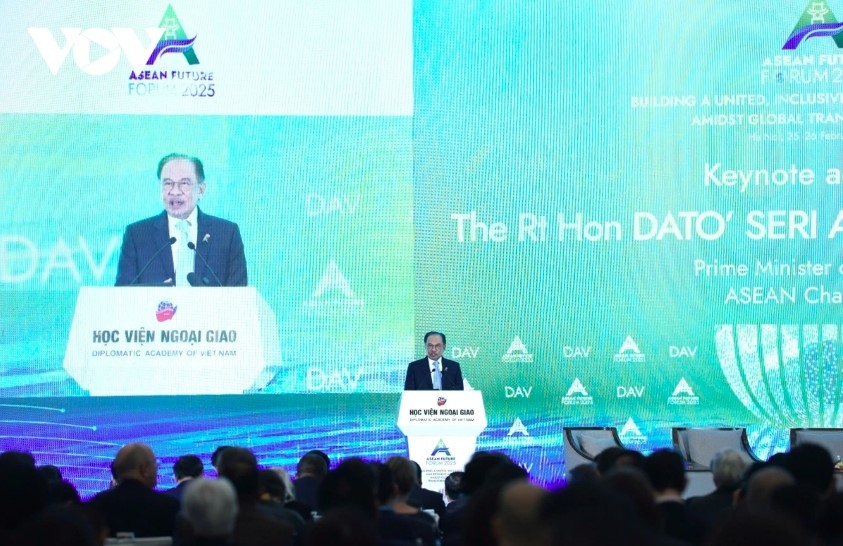
Praising Vietnam as a remarkable success story of economic transformation, PM Anwar Ibrahim highlighted the country’s journey from hardship to modernization. He emphasized that ASEAN, as one of the world’s safest and fastest-growing regions, must leverage its strengths to navigate global disruptions. As the ASEAN Chair in 2025, Malaysia has chosen the theme “Inclusivity and sustainability”, reflecting a shared commitment to fostering unity and long-term prosperity.
New Zealand reaffirms commitment to ASEAN partnership
New Zealand Prime Minister Christopher Luxon expressed his nation’s strong commitment to deepening ties with ASEAN, underlining the region’s strategic and economic importance. He noted that 2025 marks the 50th anniversary of Vietnam-New Zealand diplomacy, reaffirming Wellington’s dedication to the partnership.
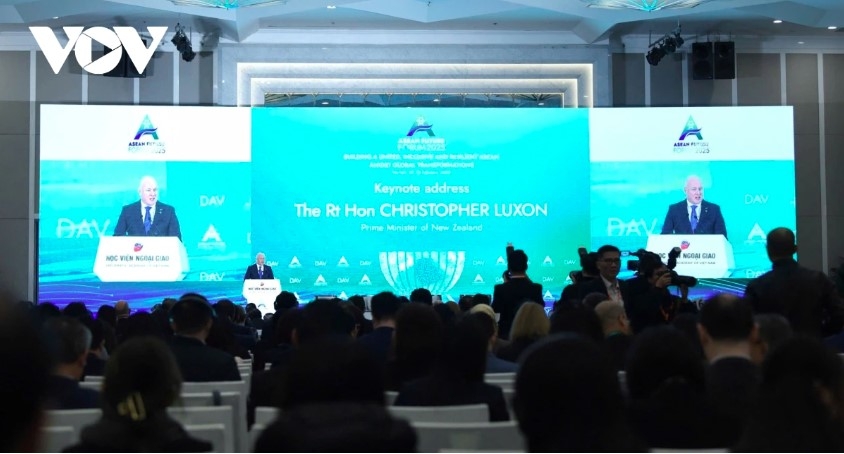
Luxon highlighted ASEAN as one of the world’s fastest-growing economic regions, projected to become the fourth-largest economy globally. Recognizing the significance of economic integration, he pledged to expand trade relations, set an ambitious goal of doubling bilateral trade, and encouraged more ASEAN investments in New Zealand.
Vietnam stresses self-reliance and strategic autonomy
Addressing the forum, Prime Minister Pham Minh Chinh stressed that self-reliance, resilience, and strategic autonomy must be the cornerstone of ASEAN’s development. He outlined key priorities: maintaining balanced foreign relations, fostering sustainable economic growth, strengthening defence and security, ensuring social welfare, and preserving cultural identity as an intrinsic strength.
The Vietnamese Government chief reaffirmed that Vietnam and ASEAN must uphold independence in policymaking while remaining open to global partnerships. He laid stress on the importance of mutual respect, adherence to international law, and peaceful dispute resolution in safeguarding regional stability.
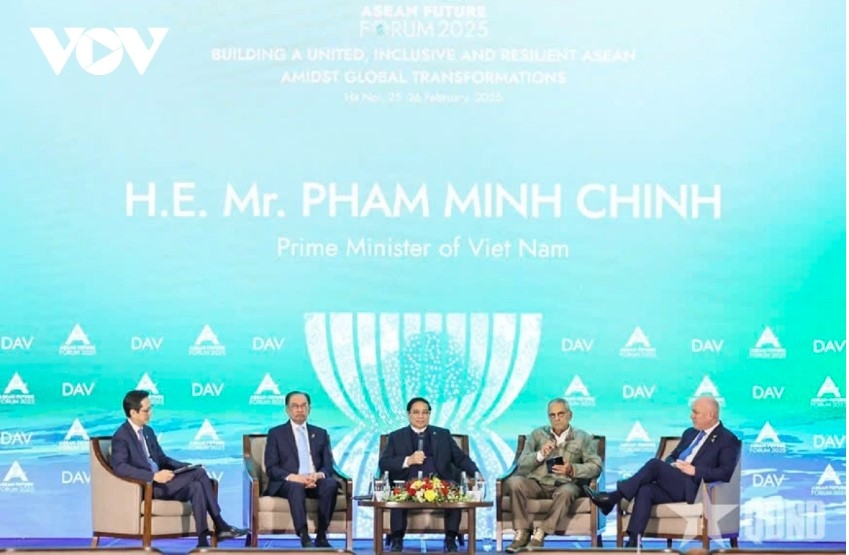
Enhancing ASEAN’s joint response to global challenges
The plenary session also featured discussions on climate change, digital transformation, and emerging security challenges. Malaysian Prime Minister Anwar Ibrahim underscored ASEAN’s competitive advantage in semiconductor production, urging stronger collaboration to boost the region’s role in the global supply chain.
Timor-Leste President Jose Ramos-Horta shared his country’s perspective on ASEAN membership, emphasizing the need for careful preparation and consensus among existing member states. Meanwhile, New Zealand’s Prime Minister underlined the importance of enhancing ASEAN’s connectivity with Pacific Island nations to foster regional stability.
In response to a question on the rules-based international order, Prime Minister Pham Minh Chinh reiterated that all nations must respect sovereignty, resolve disputes through peaceful means, and uphold human rights. He emphasized ASEAN’s core value of “unity in diversity” and the need for pragmatic, flexible approaches in global and regional affairs to ensure long-term peace, cooperation, and prosperity.

